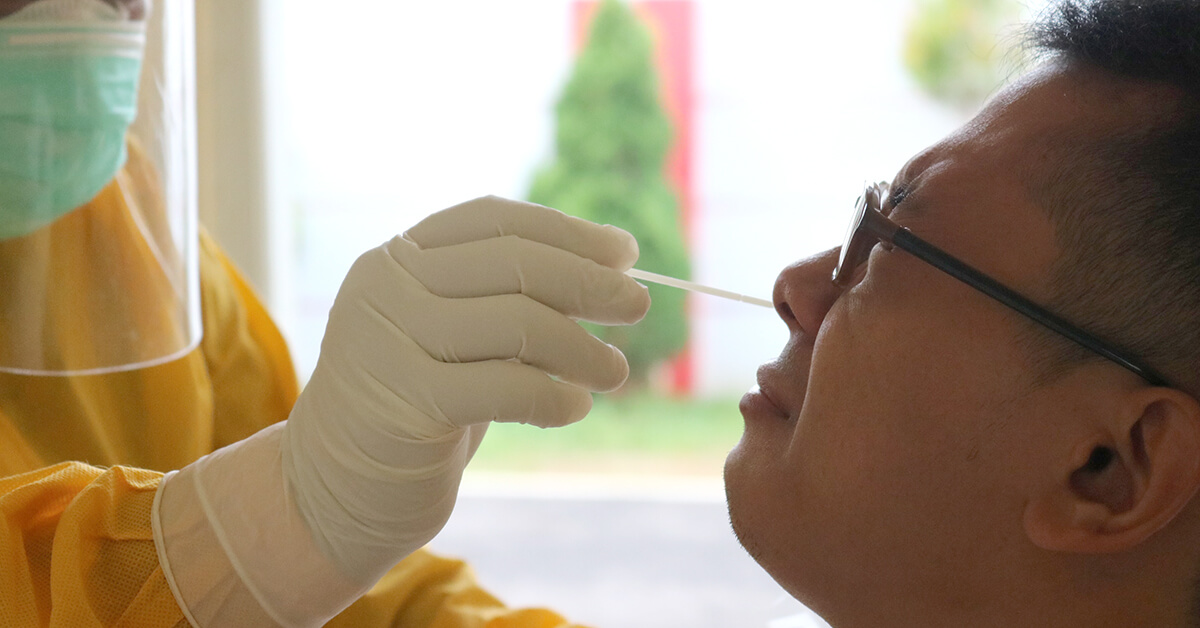
Feb. 19, 2021
The Centers for Disease Control and Prevention’s (CDC’s) new COVID testing rules for international flights into the U.S. illustrate the importance of pre-flight planning, industry and medical experts concluded in the latest NBAA News Hour: COVID and New Orders from the CDC.
Under new rules implemented Jan. 26, every passenger must be tested for COVID-19 no more than three days before entering the U.S. and provide proof of a negative result at the port of entry or carry documentation from a health care provider or public health authority of having recovered from COVID-19 in the past 90 days.
Read NBAA’s in-depth analysis of the CDC’s COVID testing rules.
“The CDC order has had a big impact on our industry and certainly has increased the amount of pre-planning that people need to do,” said Phil Linebaugh, chief operating officer at Houston, TX-based International Trip Planning Services, LLC. “For anyone operating international service, pre-planning now must include where the passengers can get tested, how to collect the required documentation, and, if crews are deadheading, how to ensure the crews have the correct documentation to get back home safely.
“The biggest question in our industry right now is exactly what are the rules and how do we ensure that we comply with them,” Linebaugh added.
Dr. Greg Vanichkachorn, M.D., M.P.H., the Mayo Clinic’s senior aviation medical examiner, said, when it comes to COVID testing abroad, the best offense is a good defense.
“If you know that you were going to be traveling abroad, the first place that I would go to for information the U.S. embassy or consulate websites, which often will have a lot of great information on local regulations regarding COVID testing and where to get safe local health care and tests. Another good resource is the website www.testfortravel.com,” noted Vanichkachorn.
Dr. Clive Brown, M.B.B.S, M.Sc., M.P.H., chief of the CDC’s Quarantine and Border Health Services Branch, who helped clarify many of the general aviation community’s concerns during the webinar, also noted that operators must ensure the validity of the test results offered by passengers.
While rapid antigen and polymerase chain reaction, or PCR, tests are accepted, home test kits, for now, are not. “The tests must come from an accredited source,” noted Brown. “It’s not that home test kits don’t work, but for the fidelity of the system, we are requiring that the process be observed in some way.”
Operators also should remain vigilant for revisions to the COVID rules, continued Brown, as the CDC is constantly monitoring the application of its rules as well as the spread of new variants of the novel coronavirus and the impact of vaccinations.
During the how-long webinar, Brown addressed exemptions to the CDC’s rule that allow crews to travel outside of the country and return without COVID test documentation and emphasized that operators comply with the FAA’s recent Safety Alert of Operators, SAFO 20009 when determining appropriate procedures for crews traveling outside the U.S. Review the CDC rule.
Linebaugh, warned operators to prepare their crews for the possibility that airline employees and U.S. Customs and Border Protection staff may not fully understand the scope of the CDC’s waivers. “If you are deadheading or leaving your corporate jet at a destination and you are planning to use a commercial airline, it’s best to just go ahead and get that the test,” he said. “Depending on how the gate agent or the CBP agent applies the CDC’s rules, you could find yourself stranded without a test result or the proper documentation.”
Linebaugh further cautioned that crews deadheading into the U.S. should be prepared to show gate agents a letter indicating their exemption status. View a sample letter.
Importantly, operators and crews should appreciate that the CDC’s new testing rules, like the recent mask-wearing mandate, are part of a concerted effort to end the global pandemic, said Mayo Clinic’s Vanichkachorn. “Remember that this is a work in progress. Having some extra patience and stress resistance is very important. There are going to be a lot of people who are confused or have different information and part of staying healthy is managing your stress, so just be prepared to go into these situations with an open mind and plan ahead as much as you can,” he advised.
NBAA Director, Flight Operations and Regulations, Brian Koester, CAM, noted that the upcoming NBAA GO Flight Operations Conference, from Feb. 23-25, also includes a session on best practices for crew members operating during the COVID-19 pandemic.
Learn more and register for the NBAA GO Flight Operations Conference.


 International Business Aviation Council Ltd.
International Business Aviation Council Ltd.